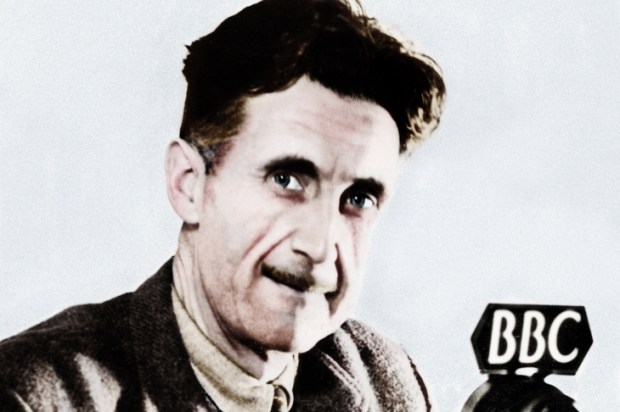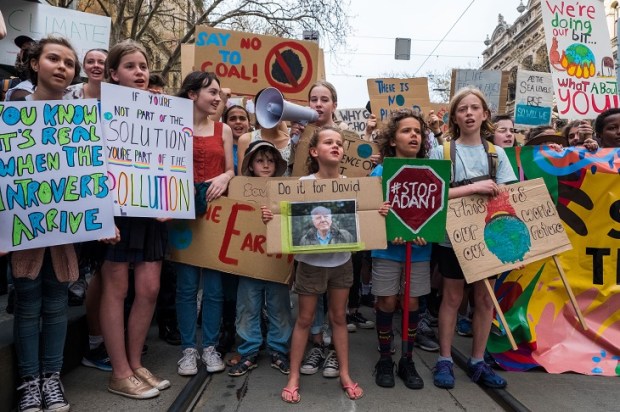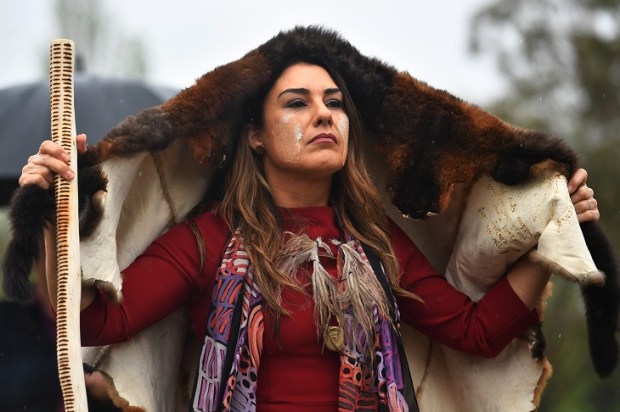While reading Thomas Mayo and Kerry O’Brien’s The Voice to Parliament Handbook: All the detail you need, I was reminded of a quote by Ronald Reagan: ‘The most terrifying words in the English language are: I’m from the government and I’m here to help.’
The book is replete with lamentations of the woes of colonialism but light on facts, good arguments, or practical outcomes the Voice will aim for.
The authors claim that if the Voice referendum succeeds, Australians ‘will have created a necessarily compelling Voice that will work with the Executive Government and the Parliament to close the gap’.
If the purpose of the Voice is to ‘close the gap’ – meaning to deal with issues such as imprisonment, unemployment, shorter life expectancy, alcoholism, sexual abuse, and domestic violence which, statistically speaking, affect Indigenous Australians more than others – then it must address the fundamental issues that contribute to these. This is something that existing bureaucracies dedicated to Indigenous interests have so far failed to do.
The book doesn’t explain how permanently entrenching another bureaucracy into the Constitution will achieve these outcomes, but instead asserts that the Voice will be different because its members would be Indigenous (although we still don’t know exactly how Aboriginality will be defined for membership purposes). It’s as if the ‘Yes’ campaigners are saying ‘every other bureaucracy has failed to close the gap, so the only thing left to do is make this one permanent’.
The sad truth is that the ‘gap’ is reinforced by welfare state policies that keep many Indigenous people financially dependent on government. This mindset also adds to the lack of political will when it comes to punishing and preventing serious crimes, such as the sexual abuse and neglect of children. Activists would decry these convictions as a form of colonialism.
As Senator Nampijinpa Price said in her maiden speech last year:
‘Better employment outcomes contribute to better functioning households where children are more likely to attend school more often… I believe free enterprise coupled with sound fiscal management in a progressive commercial environment forms the basis for economic independence. In other words, business and jobs are the key to economic health for a community, not the shackles of welfare dependency.’
Shackles is the right word. Welfare is often a trap that keeps people, Indigenous or not, in a state of dependence on the State and without incentives to improve. If policies intended to help Indigenous people are not fostering healthy families (which requires punishing those who commit heinous crimes) and economic independence, the ‘gap’ will remain wide. Colonialism can only be blamed for so long.
However, we have no reason to believe the Voice will offer anything other than the same anti-colonial rhetoric we’ve come to expect from activists and bureaucrats – especially given the left-wing perspectives of Voice advocates, especially those who have paid their respects to the Communist Party of Australia.
In Chapter 2 of the handbook, Kerry O’Brien writes:
‘While Kevin Rudd’s apology in Parliament in 2008 to the Stolen Generations survivors was a powerfully symbolic gesture at the time, the government’s commitment to closing the gap … has had limited success in the fifteen years since. The issues that led to the Intervention might have been handled much more effectively if Indigenous representations had been available to the Howard government from an advisory group like the Voice.’
How so? There is no attempt to explain how or why such an advisory body ‘might’ have made any difference to the Howard government when ‘The Intervention’ (the Northern Territory National Emergency Response) was implemented, or why the Intervention was wrong apart from the idea that it was ‘fundamentally discriminatory’. This is hardly a strong argument for cementing the Voice (the powers of which are yet to be determined) in the Constitution.
Peter Dutton has stated that a future Liberal government would legislate for local and regional advisory bodies but not a federal, constitutionally enshrined one. Such bodies obviously do not require constitutional protection. South Australia’s Labor government has already legislated a state-based advisory body, undermining the authors’ claim that ‘the principle of listening to Indigenous peoples can only be guaranteed … through constitutional recognition’. Do the authors think that South Australia’s Voice will fail?
In their chapter titled, ‘How the Voice can help to close the gap’, which is the whole point of the Voice, more funding is suggested for extant government programs and the creation of new ones that we haven’t thought of yet. If that’s the solution (and history shows that it isn’t), why not advocate directly for these? Why waste so much time and money holding a $364 million referendum to establish a permanent advisory body to suggest this?
Furthermore, the authors argue that we are not voting for a particular model of the Voice, or for any specific outcome, but for the ‘principle’ that Indigenous people will have ‘a voice at the table’. This is an abstract, sentimental idea, not something practical that can be held to any specific standard. Apparently, if the Voice fails or turns out to be a Trojan horse for other agendas, it doesn’t matter because it was right in ‘principle’.
‘If the referendum is successful,’ they write, ‘the elected members of Parliament will then work out the composition, powers, functions, and procedures of the Voice with Aboriginal and Torres Strait Islander peoples.’ In other words, the Parliament will determine how much power the Voice will wield after it’s already been created.
One wonders why anyone would want to establish a permanent bureaucracy whose powers are yet to be determined. Surely that is something one would want to know beforehand, hence the ‘Yes’ campaign hopes to distract from this obvious flaw in their case by relying on the firm belief in their own moral superiority. Never mind the failures of previous bureaucracies or the ambiguous nature of the Voice’s powers. We are supposed to trust good intentions.
The authors conclude their book with an amusing series of questions and answers.
Question: ‘Would the Voice be able to interfere in matters that aren’t obviously affecting Indigenous peoples?’ Answer: ‘The Voice will focus on matters that affect the health and wellbeing of Indigenous peoples.’ What constitutes a matter that affects Indigenous people? That could mean anything.
Question: ‘What powers would a Voice be able to exercise?’ Answer: ‘… future Parliaments would be able to make changes to how the Voice would operate, hopefully to improve its relevance and efficiency.’ Yes, hopefully. We simply don’t know how much power it will wield, or what it will do, and that could change from one government to the next.
As Thomas Sowell said, ‘You will never understand bureaucracies until you understand that for bureaucrats procedure is everything and outcomes are nothing.’ A permanent bureaucracy whose job is to ‘close the gap’ depends on the existence of that gap to be relevant. If the Voice is permanent, what will it do once the ‘gap’ is closed?
Perhaps the real agenda is something else entirely.

























